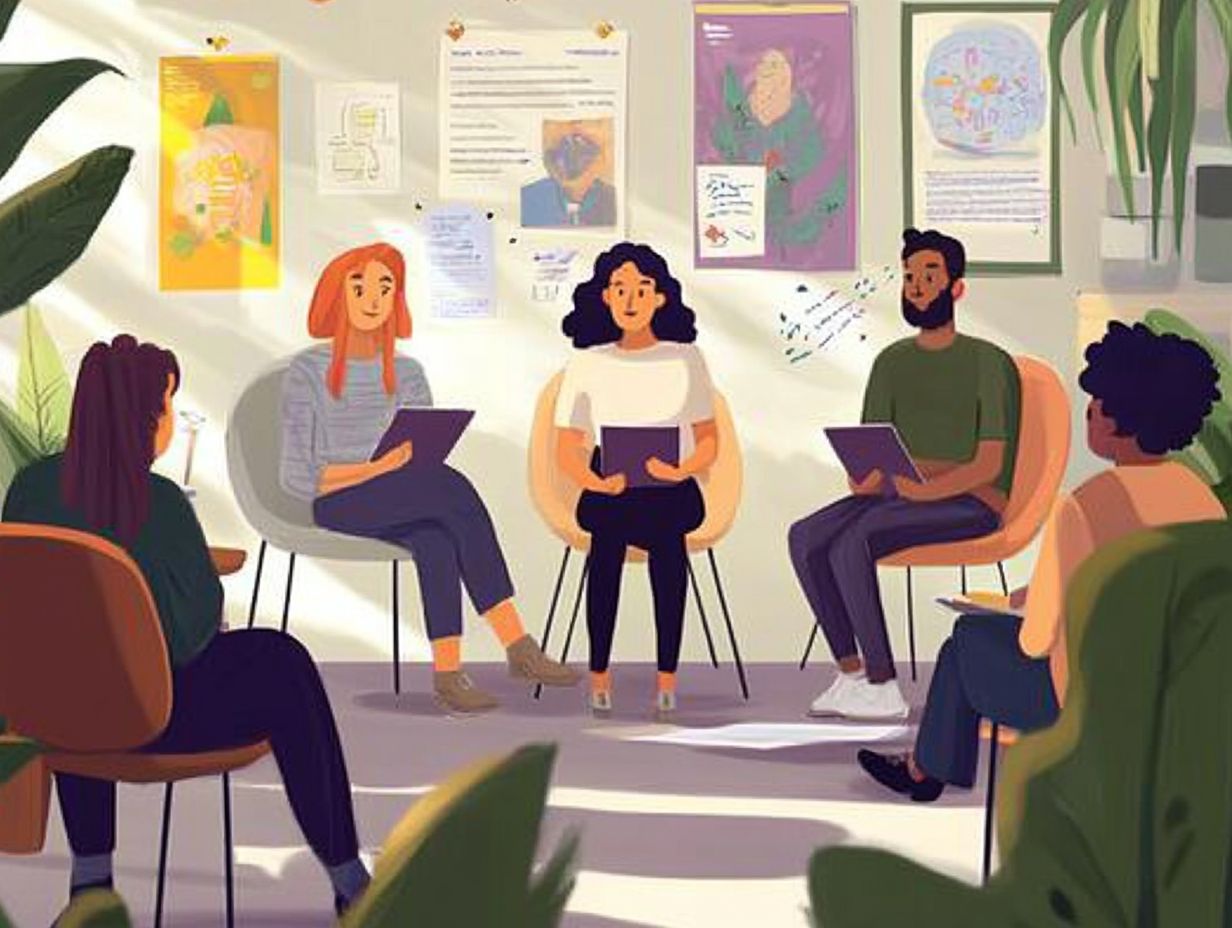Myths about cancer, including misconceptions about cancer causes and self-advocacy, can hinder the journey toward effective treatment and personal empowerment. Despite common misconceptions, cancer is not always a death sentence; advances in diagnosis and treatment have significantly improved survival rates for many types, including breast, prostate, and colorectal cancers.
Self-advocacy is crucial for all cancer patients, regardless of their medical background. Patients should feel empowered to question doctors, explore treatment options, such as chemotherapy and radiation therapy, and refuse certain treatments if they do not align with personal values or health goals. This ongoing process requires active participation in healthcare decisions to improve outcomes and enhance quality of life.
Understanding the importance of self-advocacy helps patients navigate their cancer journey, contributing to cancer awareness. By fostering open communication with healthcare providers and seeking support networks, individuals can make informed decisions that reflect their personal needs and preferences.
Key Takeaways:
1. Cancer Is Always a Death Sentence

Cancer is not always a death sentence. Advances in cancer treatments have improved survival rates significantly.
For example, breast cancer has a five-year survival rate of over 90% due to early detection and treatment, as highlighted by institutions like the Mayo Clinic and the National Cancer Institute.
Types such as colorectal and thyroid cancer also show increased survival rates, reflecting progress in cancer research and therapies, and contributing to positive cancer statistics.
Early diagnosis and appropriate treatment are crucial for favorable outcomes.
2. Self-Advocacy Is Only for Those with a Medical Background
Self-advocacy in healthcare is essential for all cancer patients, not just those with a medical background.
Patients should actively engage in their treatment by researching their cancer type, understanding cancer risk factors, and communicating preferences to healthcare providers.
Effective self-advocacy can lead to informed decisions and better health outcomes.
3. You Can’t Question Your Doctor
Patients can and should question their doctors to ensure understanding of their diagnosis and treatment options.
Questioning doctors give the power tos patients, improves communication, and supports well-considered choices in healthcare.
Open dialogue helps clarify medical jargon, demystifies treatment plans, and informs patients about potential side effects and alternatives, including the role of sugar and cancer, which is often misunderstood.
4. You Have to Accept All Recommended Treatments
Cancer patients do not have to accept all recommended treatments. Patients have the right to refuse treatments or explore alternative options.
Advancements in cancer research provide new options and personalized therapies.
Self-advocacy allows patients to choose treatments aligning with their values and health goals.
5. Self-Advocacy Is a One-Time Thing

Self-advocacy is not a one-time action; it is an ongoing process requiring cancer patients to regularly engage with healthcare providers and stay informed about treatment options.
Patients must consistently schedule appointments, ask questions, and voice concerns to advocate for their needs effectively.
Self-advocacy give the power tos patients to make informed healthcare decisions and improve their quality of life.
What Does It Mean to Be a Self-Advocate in the Context of Cancer?
Being a self-advocate in the context of cancer means actively participating in healthcare decisions and expressing concerns, preferences, and needs to the medical team.
Self-advocacy involves understanding treatment options, clarifying medical information, and exploring alternative therapies for personalized care, including awareness of genetic mutations and their impact on cancer treatment.
This engagement fosters a supportive network and ensures treatment plans align with patients’ values and lifestyles.
What Are the Benefits of Self-Advocacy in Cancer Treatment?
Self-advocacy in cancer treatment improves communication with healthcare providers, enhances understanding of treatment options, and increases patient involvement in decision-making.
Self-advocacy benefits cancer patients by reducing anxiety and personalizing treatment plans.
Patients gain confidence, control over their care, and contribute to cancer awareness and support networks, such as those offered by the American Cancer Society.
What Are the Potential Risks of Not Being a Self-Advocate in Cancer Treatment?
Potential risks of not being a self-advocate in cancer treatment include poor understanding of cancer diagnosis, inadequate treatment plans, and feelings of helplessness that can impact mental health.
Not actively participating in care discussions leads to less informed decisions and poor treatment adherence.
Missed opportunities for personalized care and reduced emotional support can result from lack of self-advocacy.
Self-advocacy is crucial for ensuring the best possible outcomes in cancer treatment, contributing to better cancer survival rates.
How Can Self-Advocacy Help with Decision Making in Cancer Treatment?

Self-advocacy in cancer treatment helps patients make informed decisions by give the power toing them to ask questions, explore treatment options, and express their preferences to healthcare providers.
Self-advocacy enhances patient-provider communication, helping patients understand treatment benefits and drawbacks and contributing to personalized care plans.
Self-advocacy enables patients to navigate the medical landscape and participate actively in their treatment choices.
What Are Some Tips for Being a Successful Self-Advocate in Cancer Treatment?
Successful self-advocacy in cancer treatment involves educating oneself about the condition, actively communicating with the healthcare team, and joining support networks.
- Cancer patients should prepare questions for appointments.
- Use reliable resources for information.
- Engage in support groups to understand treatment options.
These actions help patients gain control over their cancer treatment and raise cancer awareness.
What Are Some Resources Available for Cancer Patients to Learn More about Self-Advocacy?
Cancer patient self-advocacy resources include the National Cancer Institute and the American Cancer Society, which provide comprehensive information and give the power toment tools.
Books like ‘The Cancer Survivor’s Companion’ by Dr. Frances Goodhart offer insights into emotional navigation during cancer care.
Local support groups offer shared experiences and strategies for self-advocacy.
Websites like CancerCare.org provide financial assistance and counseling services to support patient give the power toment.
These resources help cancer patients communicate needs effectively with healthcare providers.
Frequently Asked Questions
What are the 5 myths about cancer and self-advocacy?

The 5 myths about cancer and self-advocacy are: 1) Only doctors can make decisions about treatment, 2) Self-advocacy is too difficult for cancer patients, 3) Being assertive means being rude or aggressive, 4) Seeking a second opinion is disrespectful to your doctor, and 5) Self-advocacy is only necessary for advanced or terminal cancer patients.
Is it true that only doctors can make decisions about my cancer treatment?
No, this is a common myth. While doctors play a crucial role in guiding treatment decisions, it is ultimately up to the patient to make informed choices about their care. Self-advocacy involves being an active participant in your treatment plan, understanding cancer causes, and making your own decisions alongside your medical team.
Some people say that self-advocacy is too difficult for cancer patients. Is this true?
No, self-advocacy may seem daunting, but it is an important skill that can greatly benefit cancer patients, including awareness of conditions like obesity and cancer. With the right resources and support, anyone can learn how to effectively advocate for their needs and preferences in their cancer journey.
Is being assertive the same as being rude or aggressive?
No, being assertive means clearly stating your needs and preferences while also being respectful of others. It is important for cancer patients to be assertive in order to effectively communicate with their medical team and ensure their needs are met.
I’ve heard that seeking a second opinion is disrespectful to my doctor. Is this true?
No, seeking a second opinion is a common and encouraged practice in cancer treatment. It does not mean that you distrust your doctor, but rather that you want to explore all options, such as organ transplantation if necessary, and make the best decision for your health.
Do I only need to practice self-advocacy if I have advanced or terminal cancer?
No, self-advocacy is important for all cancer patients, regardless of the stage of their disease, including those concerned about cancer being contagious. It allows individuals to take an active role in their treatment and helps them feel more in control of their journey.





